Published Oct 10, 2023
Dr. McCoy Sums Up My True Feelings About Space Travel
'One tiny crack in the hull and our blood boils in 13 seconds.'
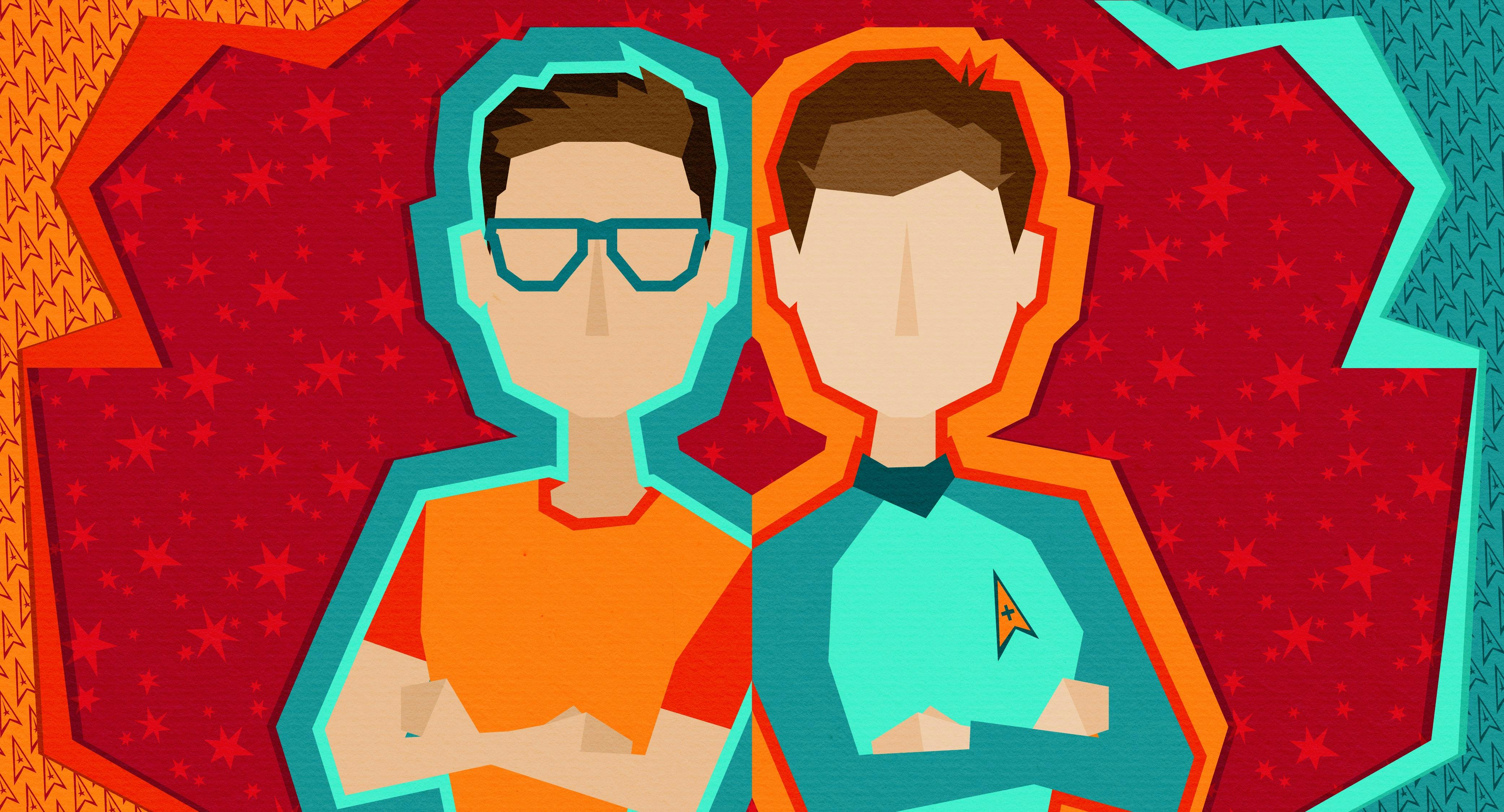
StarTrek.com
Watching as a kid in the ‘90s, I was obsessed with the idea of warping around the galaxy, visiting strange new worlds, and meeting new forms of life. What I wouldn’t give to spend a day aboard a starship! But as I think about the logistics of boldly going through the unforgiving vacuum of space as an adult, the excitement melts away into sheer panic.
To echo Zefram Cochrane, the inventor of warp drive, “I don’t even like to fly.” How could I stomach traveling faster than the speed of light, running headlong into dangers like hostile non-corporeal beings, extraterrestrial plagues, and a variety of deadly space phenomena? More importantly, how can I seriously call myself a Star Trek fan if space terrifies me? Luckily, there’s a person in whom I can take solace — Dr. Leonard “Bones” McCoy, a character who represents all of us who love the idea of futuristic space travel but aren't exactly cut out for it.
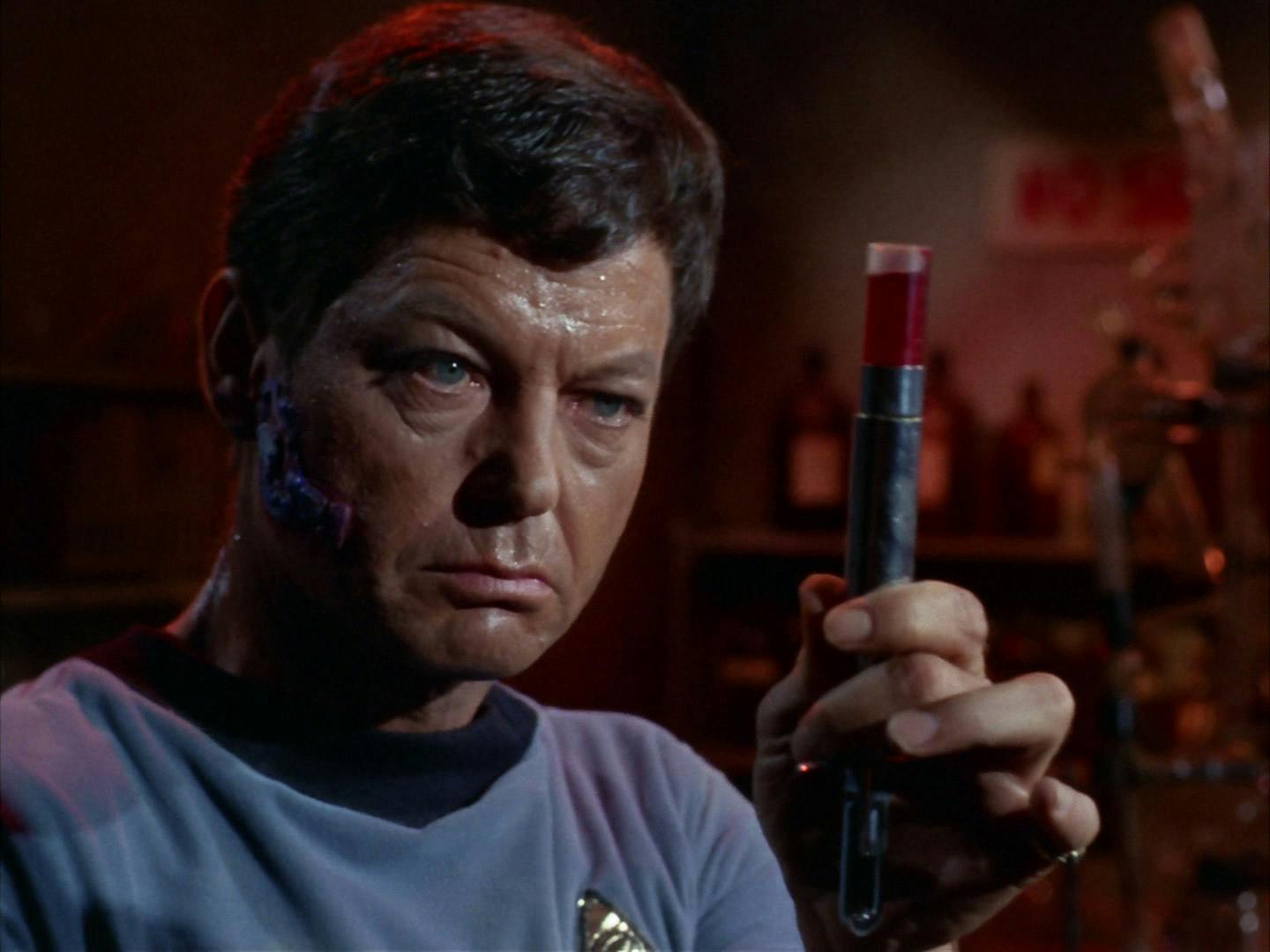
"Miri"
StarTrek.com
It’s an accident that I relate so much to Dr. McCoy; he and I couldn't have less in common (besides the 200-year age gap, of course). He’s from Georgia; I’m from New York. He was the brilliant chief medical officer aboard the U.S.S. Enterprise who cured alien diseases. I’m a writer whose knowledge of the body stops at high school biology. McCoy once tested a potentially lethal vaccine by injecting himself with it in The Original Series episode “.” I’m a hypochondriac who needs to look away from the needle every time I get my blood drawn. He’s a country boy who likes mint juleps; I couldn’t tell you what’s in one. Despite our differences, it’s on the topic of space exploration that we both agree — it's necessary, it’s noble, but it’s damn dangerous.
The feature films are where we really see McCoy lean into this mindset, and where I find myself nodding in agreement most often. In 2009’s , Bones (albeit the alternate-timeline version) delivers his feelings most succinctly, telling his future captain exactly why he hates space within moments of first meeting him —
One tiny crack in the hull and our blood boils in 13 seconds. A solar flare might crop up, cook us in our seats. And wait till you're sitting pretty with a case of Andorian shingles. See if you're still so relaxed when your eyeballs are bleeding. Space is disease and danger wrapped in darkness and silence.
Dr. Leonard 'Bones' McCoy, Star Trek (2009)
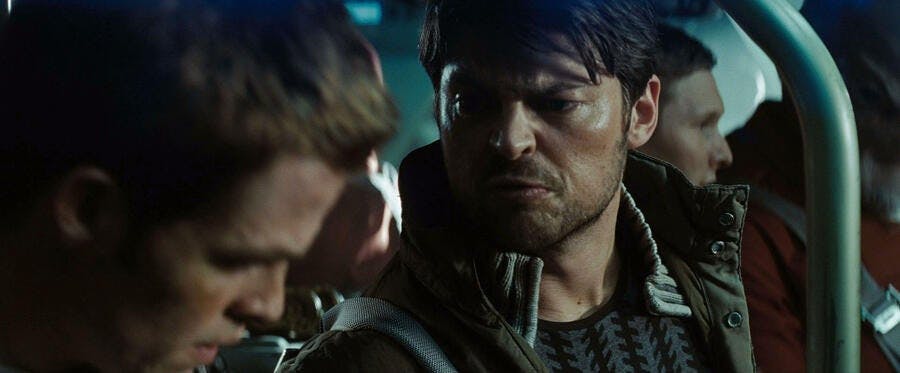
Star Trek (2009)
StarTrek.com
So much for making a good first impression.
Back in the Prime universe, we learn in that Bones apparently left Starfleet after his five-year mission on the Enterprise and vowed never to return, that is, until he was essentially drafted back into service. We even see him call entire missions into question, criticizing Kirk’s plan to go back in time to save Earth via a slingshot maneuver around the sun in and flat out calling their orders to stop a hostage crisis on Nimbus III a “terrible idea” in . Granted, these aren’t your typical NASA space missions, but they’re par for the course for Starfleet. If I magically got my boyhood wish of spending a day on a starship, I’d be right next to McCoy throwing shade at these missions too.
It’s easy to write off McCoy as just a cynical foil to the swashbuckling Captain Kirk and logical Mr. Spock, but I think he’s there to validate us more risk-averse fans — to say, “Hey, you’re not wrong in thinking this stuff is scary, because it is!”
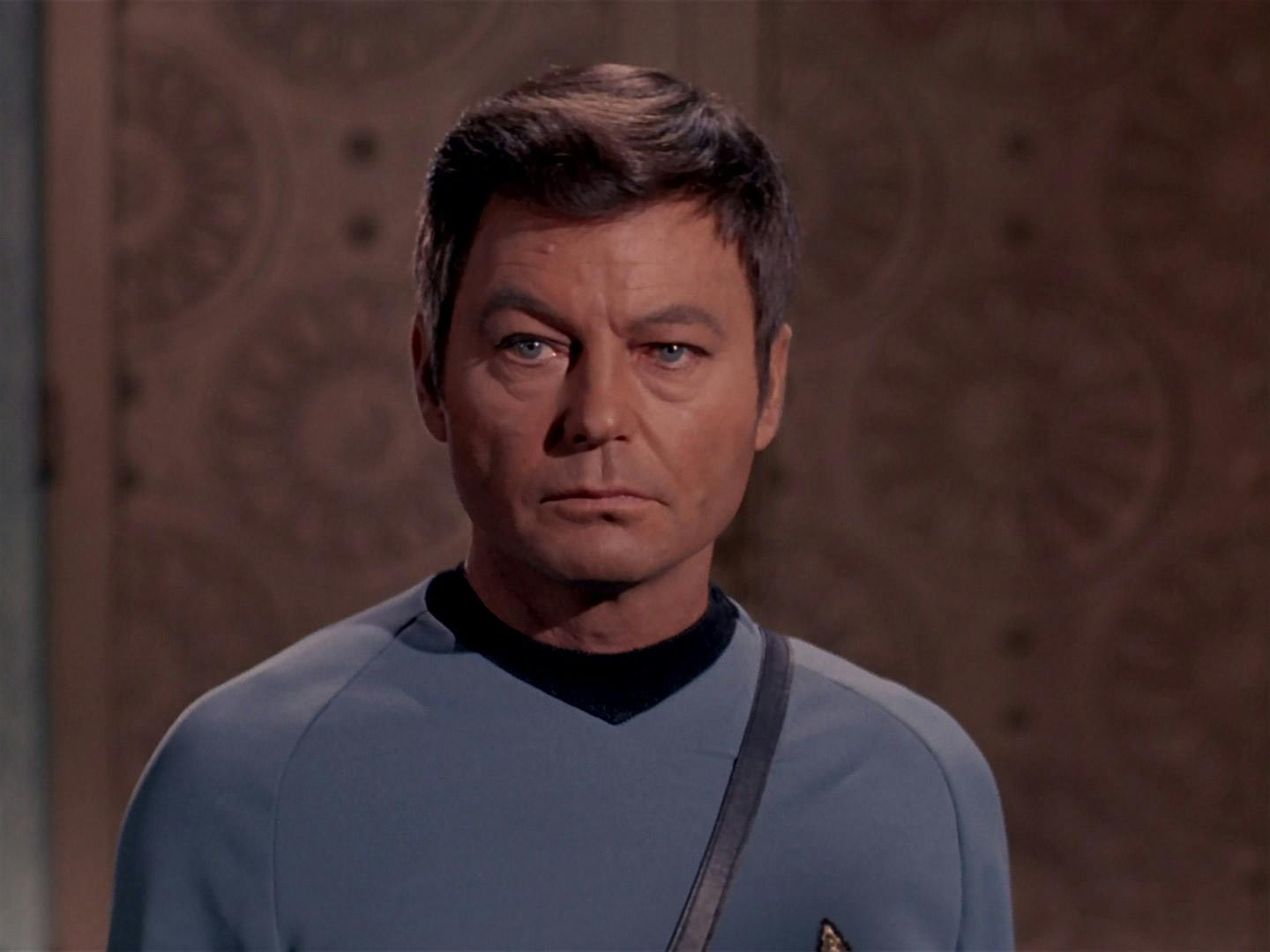
"Plato's Stepchildren"
StarTrek.com
When Star Trek debuted in 1966, humans were only five years into spaceflight, which presented a very real and new danger to people. If Kirk represented the bold astronauts who would soon be journeying to the moon and back, and Spock mirrored the genius engineers who would get them there, I think McCoy represented Americans who’d be biting their nails watching it all unfold on TV — thrilled by the prospect of space exploration, but unnerved by the realities.
There are other terrifying aspects of space travel in Star Trek besides the physical act of moving through space. Take the transporter, an invention that “saves” you the trouble of spaceflight by disintegrating your body, beaming it down to a planet, and putting it back together again (if all goes to plan).
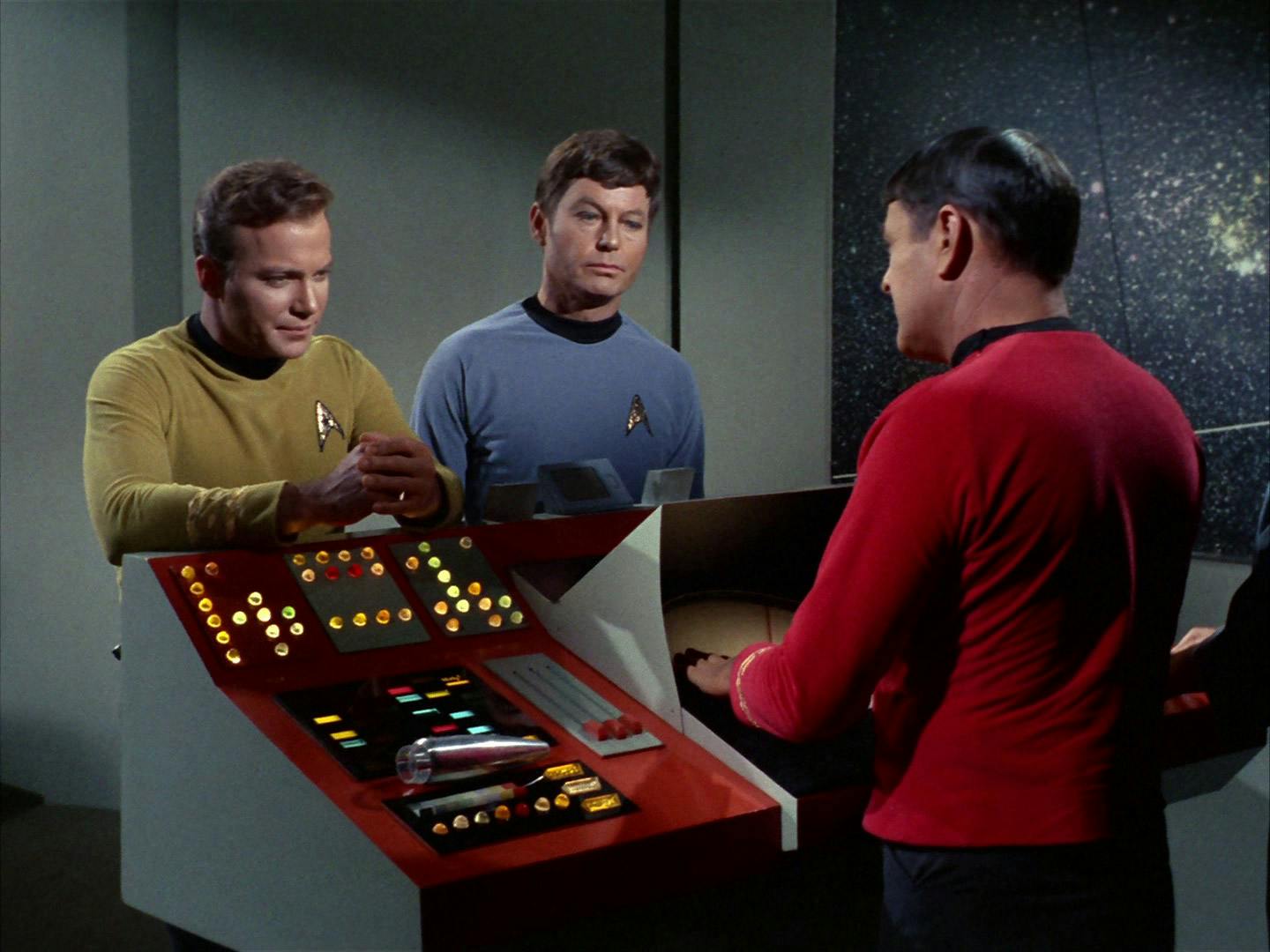
StarTrek.com
Again, McCoy sums up my feelings like only he can, protesting in the classic episode “,” “I signed aboard this ship to practice medicine, not to have my atoms scattered back and forth across space by this gadget.” And then there’s McCoy’s general distrust of technological progress. Bones laments in The Motion Picture how the engineers have turned sickbay into a “damned computer center.” I can relate, because I find myself becoming more and more resistant to change as I settle into my mid 30s. Watching Star Trek as a kid, I thought it would be so cool to talk to a computer and have it talk back. But now that smart home assistants are a thing, a computer that listens to my every word and knows my favorite burrito fillings is a little too intrusive for my tastes.
If there’s a lesson to be learned in any of this, I think it lies in the fact that, despite Dr. McCoy’s fear and frustration around space travel, he still chooses to serve aboard a starship. Is it out of a sense of duty? Is out of loyalty to his friends Captain Kirk and — dare I say — Mr. Spock? Or is it because he doesn’t have any other place to go? In the end, it doesn't really matter. What matters is he does it, and that's good enough for me. Doing things that scare you is the key to growth. I’ll try my hardest to remember that if I ever do get the chance to go to space, or the next time I face a challenge that’s a little closer to home.





